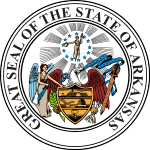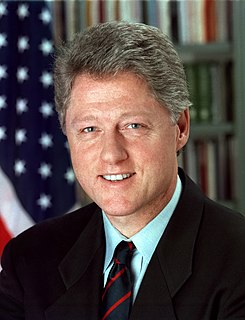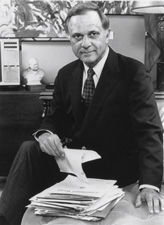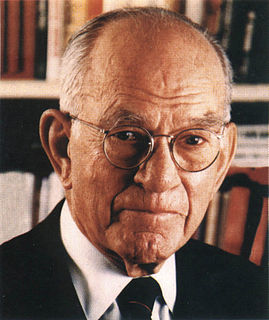Joe Edward Purcell was Acting Governor of Arkansas for six days in 1979 as well as Arkansas Attorney General from 1967–1971 and the 13th Lieutenant Governor of Arkansas from 1975–1981.

Young Timothy Hutchinson is an American Republican politician, lobbyist, and former United States senator from the state of Arkansas.

The United States Senate elections, 1978 in the middle of Democratic President Jimmy Carter's term. Thirteen seats changed hands between parties. The Democrats at first lost a net of two seats to the Republicans, and then one more in a special election. Democrats nevertheless retained a 58-41 majority.

The United States Senate elections, 1968 were elections for the United States Senate which coincided with the presidential election. Although Richard Nixon won the presidential election narrowly, the Republicans picked up five net seats in the Senate. Republicans would gain another seat after the election when Alaska Republican Ted Stevens was appointed to replace Democrat Bob Bartlett.

The New York gubernatorial election of 2006 took place on November 7, 2006 to elect the governor and lieutenant governor of New York, concurrently with elections to the United States Senate in other states and elections to the United States House of Representatives and various state and local elections. Eliot Spitzer was elected, succeeding Governor George Pataki, the three-term incumbent, who did not run for a fourth term.

The 2006 United States Senate election in New York was held November 7, 2006. Incumbent Democrat Hillary Rodham Clinton won, by a more than two-to-one margin, a second term representing New York in the United States Senate. Clinton was challenged by Republican John Spencer, a former Mayor of Yonkers, New York. Spencer won his party nomination by defeating former national security staffer K. T. McFarland in a primary.

United States gubernatorial elections were held on November 2, 2010 in 37 states and two territories. As in most midterm elections, the party controlling the White House lost ground. Democrats did take five governorships from the Republicans, and Republicans took 11 governorships from the Democrats. An independent won one governorship previously held by a Republican. A Republican won one governorship previously held by an independent. Republicans held a majority of governorships for the first time since before the 2006 elections. One state, Louisiana, had no election for governor, but did feature a special election for lieutenant governor.
Winston Bryant is a former Democratic Secretary of State (1977–1978), the 14th Lieutenant Governor (1981–1991) and attorney general (1991–1999) of the U.S. state of Arkansas.
Kenneth Lloyd Coon Sr., known as Ken Coon, is a Little Rock educator, professional psychologist, and counselor who was also a pioneer in the development of the Republican Party in the U.S. state of Arkansas. He was the GOP state chairman from 1988–1990. Earlier, he was the party's nominee for lieutenant governor in 1972, its executive director (1973–1975), and its gubernatorial candidate in 1974. He also ran for the United States House of Representatives in 1996 but lost in the primary.

The Arkansas gubernatorial election of November 8, 1966 was the first time since Reconstruction that a member of the Republican Party was elected governor.

The 2010 Illinois gubernatorial election took place on November 2, 2010. Incumbent Governor Pat Quinn, a Democrat, sought and was elected to a full term. Quinn was elected as the Democratic nominee, the Illinois Green Party nominee was attorney and 2006 nominee Rich Whitney, the Republican nominee was State Senator Bill Brady, the Libertarian Party nominee was Lex Green, and Scott Lee Cohen ran as an independent. Governor Quinn won election to a full term in a very close race, beating Senator Brady by only about 32,000 votes, despite Brady winning in 98 of 102 Illinois counties.

Edward Sheffield Nelson, known as Sheffield Nelson, is an American attorney, businessman and politician from the capital city of Little Rock, Arkansas. Originally a Democrat, Nelson in 1990 ran for governor of Arkansas as a Republican against then governor and future U.S. President Bill Clinton and in 1994 against another Democrat, the incumbent Governor Jim Guy Tucker.
Kim Dexter Hendren is a Republican currently serving in the Arkansas House of Representatives. He is a former member of the Arkansas State Senate who served as Minority Leader and chairman of the Energy Committee. Term-limited, he left the Senate in January 2013.
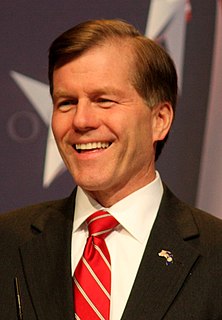
United States gubernatorial elections were held in 12 states and two territories. Of the eight Democratic and four Republican seats contested, only that of North Carolina changed party hands, giving the Republicans a net gain of one governorship. These elections coincided with the presidential election on November 6, 2012.
Elwood A. Freeman, known as Woody Freeman, is a businessman in Jonesboro, Arkansas, who was the Republican gubernatorial nominee in 1984. He lost to the incumbent Governor Bill Clinton, the Democrat who eight years later was elected President of the United States. Freeman was the third of four Republicans whom Clinton dispatched in his five successful races for governor.

The 2018 United States Senate elections were held on November 6, 2018. Thirty-three of the 100 seats were contested in regular elections while two others were contested in special elections due to Senate vacancies in Minnesota and Mississippi. The winners were elected to six-year terms running from January 3, 2019, to January 3, 2025. Senate Democrats had 26 seats up for election while Senate Republicans had nine seats up for election.

The 1998 Arkansas gubernatorial election took place on November 3, 1998 for the post of Governor of Arkansas. Incumbent Republican governor Mike Huckabee defeated Democratic nominee Bill Bristow to win a full term in office.

The 2018 Arkansas gubernatorial election was held on November 6, 2018, to elect the Governor of Arkansas, concurrently with elections to the United States Senate in other states, elections to the United States House of Representatives, and various state and local elections.

